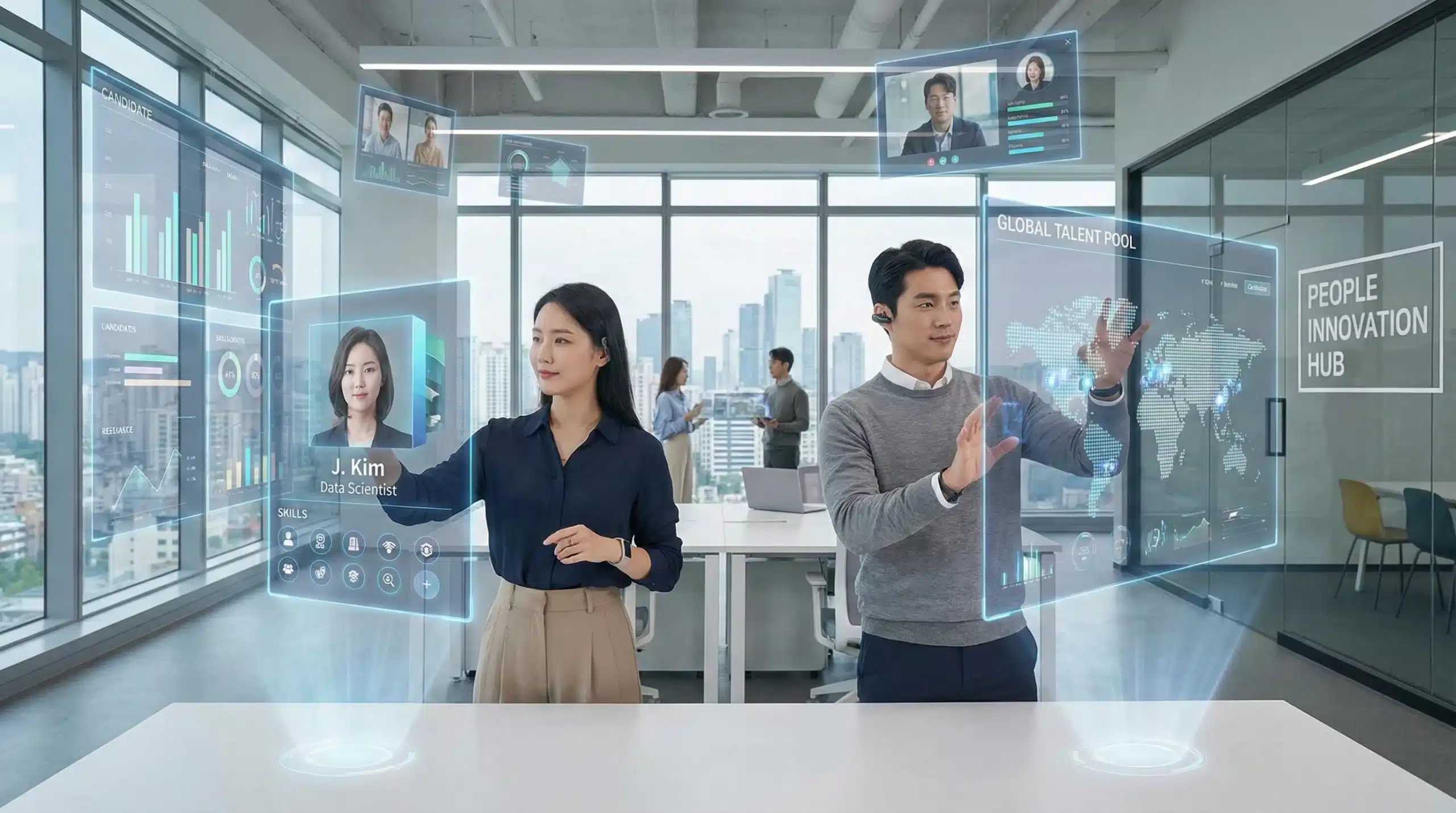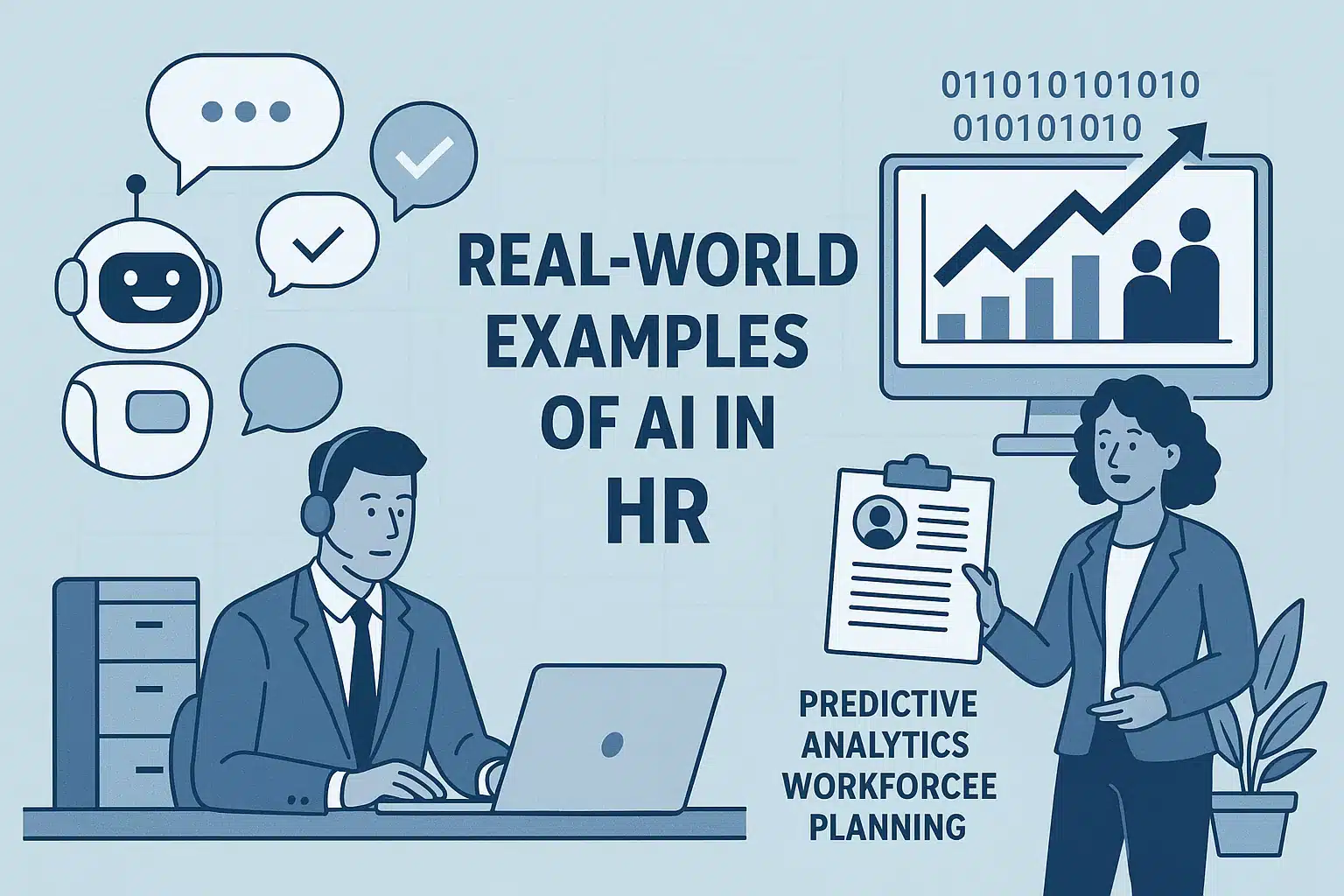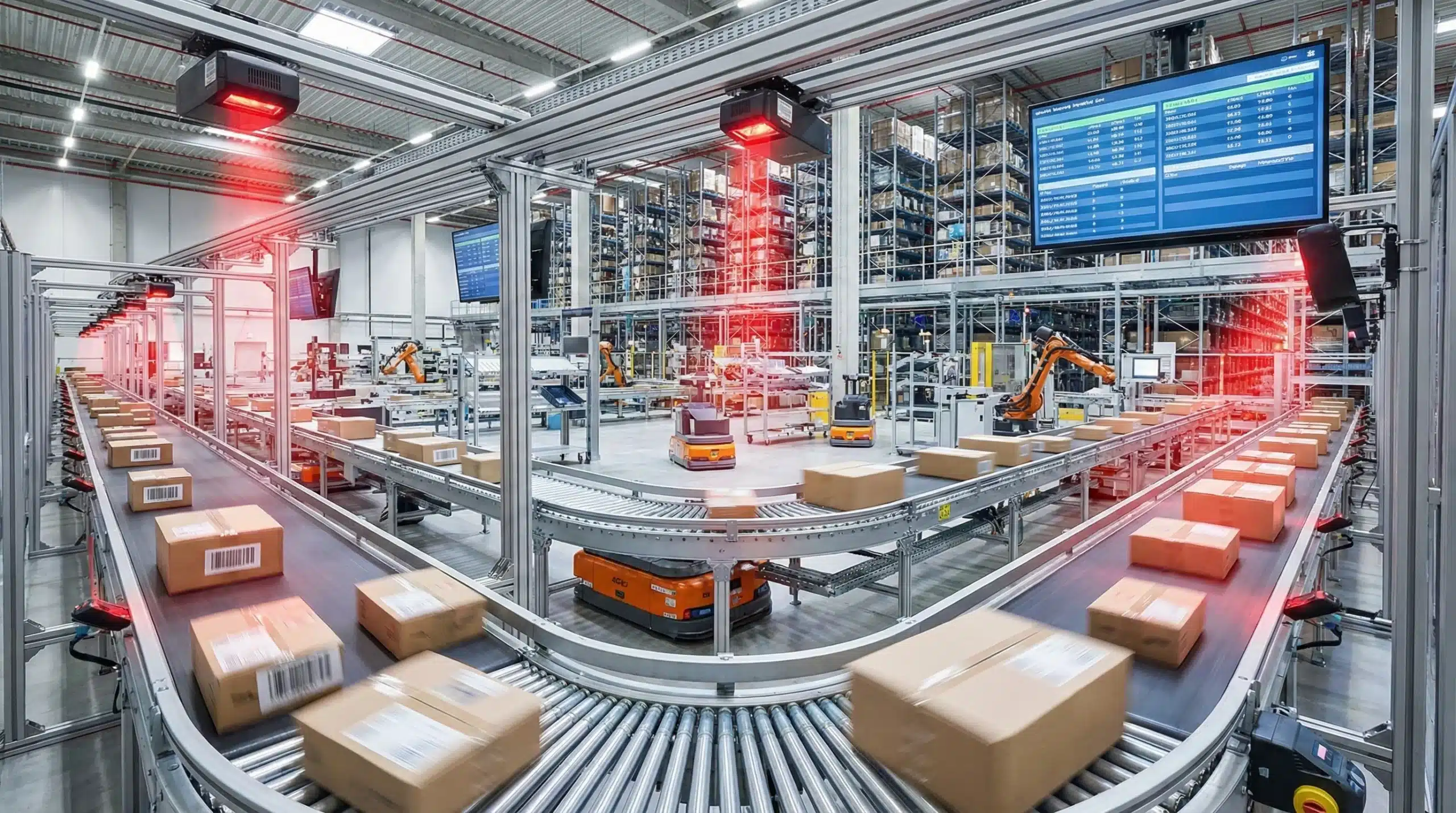Published: May 23, 2025 |
Updated: February 17, 2026 |
Reading Time: 6mins |
By: Sean Sullivan

Exploring AI in HR: How Artificial Intelligence Shapes Labor Management
In the rapidly evolving landscape of human resources, artificial intelligence (AI) is emerging as a transformative force, particularly in labor management. As companies strive to optimize their workforce planning and operational efficiency, AI offers innovative solutions that can significantly enhance these processes. This blog post will explore how AI is being utilized within HR to automate tasks, improve decision-making, and ultimately, boost employee satisfaction and retention. By examining real-world examples and addressing potential challenges, we aim to provide a comprehensive understanding of AI’s role in modern labor management.

Understanding the Role of AI in HR
AI technologies are increasingly being integrated into HR functions, revolutionizing how organizations manage their workforce. These technologies include machine learning algorithms, natural language processing, and predictive analytics, all of which contribute to more efficient HR operations. The importance of AI in labor management cannot be overstated, as it allows HR professionals to focus on strategic initiatives rather than getting bogged down by routine tasks. By leveraging AI, companies can streamline processes such as recruitment, performance evaluation, and employee engagement, leading to a more agile and responsive HR department.
Key Benefits of Implementing AI in Labor Management

One of the most significant advantages of AI in labor management is the automation of routine tasks. By automating processes like resume screening and scheduling, AI frees up valuable time for HR professionals, allowing them to concentrate on more strategic activities. This automation not only boosts productivity but also reduces the likelihood of human error, ensuring more accurate and reliable outcomes.
AI also enhances decision-making by providing data-driven insights. Through advanced analytics, HR teams can gain a deeper understanding of workforce trends and make informed decisions about staffing, training, and development. For instance, predictive analytics can forecast future hiring needs, enabling companies to proactively address potential skill gaps.
Moreover, AI contributes to improved employee satisfaction and retention rates. By personalizing the employee experience and offering tailored development opportunities, AI helps create a more engaging and supportive work environment. This personalization can lead to higher levels of job satisfaction, ultimately reducing turnover and fostering a more committed workforce.
Real-World Examples of AI in HR

Several organizations have successfully integrated AI into their HR functions, demonstrating the tangible benefits of this technology. For example, a global logistics company implemented AI-driven chatbots to handle employee inquiries, significantly reducing response times and improving overall efficiency. This integration not only enhanced the employee experience but also allowed HR staff to focus on more complex issues that required human intervention.
Another case study involves a multinational corporation that utilized AI for predictive analytics in workforce planning. By analyzing historical data, the company was able to identify patterns and predict future staffing needs with remarkable accuracy. This proactive approach enabled the organization to optimize its recruitment strategy, ensuring that the right talent was available when needed.
These examples highlight the potential of AI to transform HR practices, leading to improved operational efficiency and better workforce management outcomes.
Challenges and Considerations When Integrating AI in HR
While the benefits of AI in HR are substantial, there are also challenges that organizations must address when integrating this technology. One of the primary concerns is data privacy. As AI systems rely on vast amounts of data, ensuring the security and confidentiality of this information is paramount. Companies must implement robust data protection measures to safeguard employee information and maintain trust.
Another challenge is the potential for bias in AI algorithms. If not carefully managed, AI systems can inadvertently perpetuate existing biases, leading to unfair outcomes. To mitigate this risk, organizations must ensure that their AI tools are designed and tested with fairness and transparency in mind.
Technical challenges also pose a significant hurdle, as implementing AI requires specialized skills and expertise. Organizations must invest in training and development to equip their HR teams with the necessary knowledge to effectively manage AI tools. This investment is crucial for maximizing the potential of AI and ensuring its successful integration into HR practices.
Future Trends: AI’s Evolving Role in HR and Labor Management
As AI continues to evolve, its role in HR and labor management is expected to expand further. One emerging trend is the use of generative AI, which can create new content and solutions based on existing data. In HR, generative AI could be used to develop personalized training programs or generate tailored employee engagement strategies, enhancing the overall employee experience.
Additionally, AI is likely to play a more prominent role in strategic workforce planning. By analyzing complex datasets, AI can provide insights into workforce trends and help organizations anticipate future challenges. This capability will be invaluable as companies navigate an increasingly dynamic and competitive labor market.
As these trends unfold, it is essential for HR professionals to stay informed and adapt to the changing landscape. By embracing AI and its potential applications, organizations can position themselves for success in the future of work.
Conclusion
In conclusion, AI is reshaping labor management within HR, offering numerous benefits such as increased productivity, enhanced decision-making, and improved employee satisfaction. While challenges exist, particularly regarding data privacy and bias, these can be addressed through careful planning and investment in skills development. As AI continues to advance, its role in HR will likely expand, providing even more opportunities for organizations to optimize their workforce management strategies. HR professionals must remain proactive in exploring AI’s potential and integrating it into their practices to stay competitive in the evolving business landscape.
Frequently Asked Questions (FAQ)
What are some common AI applications in HR?
AI is commonly used for tasks such as resume screening, employee onboarding, performance analysis, and predictive analytics for workforce planning. These applications help streamline HR processes and improve efficiency by automating repetitive tasks and providing valuable insights.
How does AI improve decision-making in labor management?
AI improves decision-making by offering data-driven insights that allow HR professionals to make more accurate and timely decisions. For example, AI can analyze workforce data to identify trends and predict future staffing needs, enabling better planning and resource allocation.
What are the ethical considerations of using AI in HR?
Key ethical considerations include ensuring data privacy, avoiding bias in AI algorithms, and maintaining transparency with employees about AI usage. Organizations must implement robust data protection measures and regularly audit AI systems to ensure fairness and accountability.
Can small to medium enterprises (SMEs) also benefit from AI in HR?
Yes, SMEs can leverage AI for cost-effective solutions in recruitment, employee management, and compliance with labor laws. AI tools can help SMEs streamline operations, reduce costs, and improve decision-making, making them accessible and beneficial for businesses of all sizes.
- HR professionals should have a basic understanding of AI and data analytics, along with skills in change management and strategic planning. These skills are essential for effectively integrating and utilizing AI technologies, ensuring that organizations can fully capitalize on the benefits of AI in HR.




